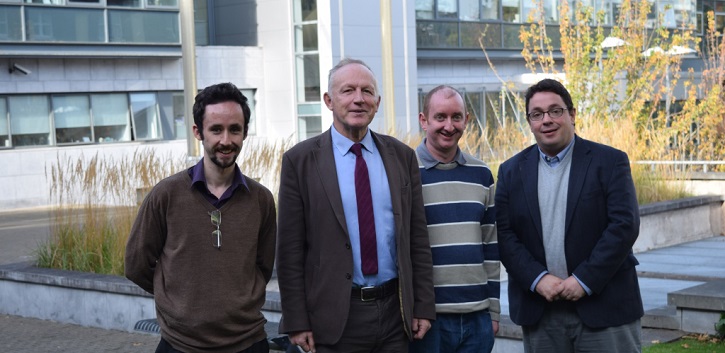Probiotic may help alleviate stress-related condition

The probiotic Bifidobacterium longum 1714 may help reduce stress and improve memory according to a small study of healthy men presented at Neuroscience 2015, in Chicago.
The APC Microbiome Institute researchers had previously shown that the bacterial strain Bifidobacterium longum 1714 reduced stress, anxiety, and depressive-like behaviours and improved memory in mice. To see whether the strain would have similar effects in humans, the researchers had 22 healthy male volunteers take the probiotic strain daily for four weeks and a placebo for another four weeks.
At the start of the study and after each of the four-week conditions, researchers measured the participants’ acute stress, memory, and brain activity. The participants also rated their daily stress on a questionnaire throughout the study. The researchers found that both perceived daily stress and physiological reaction to an acute stressor were reduced in the probiotic condition. Participants also performed better on a visual memory task after receiving the probiotic. These findings suggest this Bifidobacterium longum 1714 strain may prove to be a useful probiotic for alleviating stress-related conditions, although additional studies with more participants are needed.
“This research shows a single probiotic can alter central nervous system processes such as stress and memory in humans,” said lead author Andrew Allen, PhD, of the APC Microbiome Institute at University College Cork in Ireland. “These findings could be taken forward into people with psychological disorders related to stress, such as generalized anxiety disorder or major depression.”
Research was supported with funds from the Science Foundation Ireland, the Health Research Board of Ireland, and the European Community’s Seventh Framework Programme.
ENDS
About the APC Microbiome Institute
The APC Microbiome Institute http://apc.ucc.ie/ in Cork, the national centre for excellence in food and medicine research, is one of Science Foundation Ireland’s national centres for research and it represents a partnership between UCC, Teagasc and CIT. Since its foundation in 2003 it has made several seminal contributions to the field and was ranked second in the world by Thomson Reuters for its area of science. In recognition of the significantly increased scale of APC activities and the importance of microbes in health, UCC has recently recognised the Cork scientists with the designation of institute.
APC scientists carry out research on gastrointestinal bacterial community (the microbiome). The microbiome is not only a target for treatment and prevention of disease, it is a repository for functional food ingredients, new drugs and biomarkers of disease. Over the past decade APC scientists have explored links between gut bacteria and the brain, have related food and microbial diversity with health, have discovered new anti-microbials and anti-inflammatories and developed templates for future foods.
